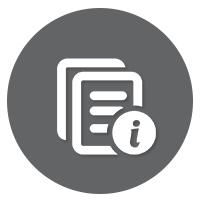Planning I: Preparation, Scope, Quality, and Risk
Getting Started
A risk register is a file containing all the risks identified by the stakeholders and the project team. Several information collection tools (such as interviews, focus groups, etc.) can be used to identify risks. Another excellent source of risks is the lessons learned document from a similar project completed in the past. For example, if the lessons learned document says that a specific supplier was late most of the time on a past project, and if your project is using the same supplier, there is a risk that the supplier will be late again. The project manager may also conduct a risk workshop, and ask the project team members to identify the risks based on their past experiences with similar tasks/projects.
Upon successful completion of this discussion, you will be able to:
- Develop a Risk Register.

Resources
- Textbook: Agile Fundamentals: A Comprehensive Guide to Using an Agile Approach
- Textbook: PMP Exam Prep
- Article: Risk Identification Techniques/Sources
- Website: IWU Resources
- Website: Evaluating Sources
- Video: Positive vs Negative Risks on Projects
- [Note: The inclusion of publicly-accessible video links in your courses and program should not be considered a recommendation or endorsement of any products or services mentioned within them.]

Background Information
Identification of risks is the first step in risk management, because it is difficult to plan effectively without knowing what could go wrong. A risk register helps you document the risks that are identified with the help of various stakeholders on the project.

Instructions
- Review the rubric to make sure you understand the criteria for earning your grade.
- In Agile Fundamentals: A Comprehensive Guide to Using an Agile Approach, Chapter 3: Value Driven Delivery, “Managing Risk”
- In PMP Exam prep, read: Chapter 11: Risk
- Read the article, Risk Identification Techniques/Sources.
- Watch the video, Positive vs Negative Risks on Projects (4:03 min).
- Navigate to the threaded discussion and respond to the following prompt(s):
- Discuss which stakeholders you plan to seek help from when identifying risks in your Integrative Project.
- Additionally, share at least two risks those stakeholders might identify in your Integrative Project and ways they may be mitigated.
- In contrast to some of your prior courses, your initial post is due Day Three of the workshop, not Day Four.
- Your initial post should be a minimum of 200 words.
- Properly cite and reference one or more of the workshop’s sources in your original post.
- All references and citations should be in APA format.
- Review the APA Style page for information on how to cite sources and format citations and references properly.
- You may also review the OCLS Evaluating Sources page to see the criteria for credible Internet research websites.
- Read and respond to at least two of your classmates’ postings, as well as all follow-up instructor questions directed to you, by the end of the workshop. Responses should be at least 100 words.
Requirements: 200
